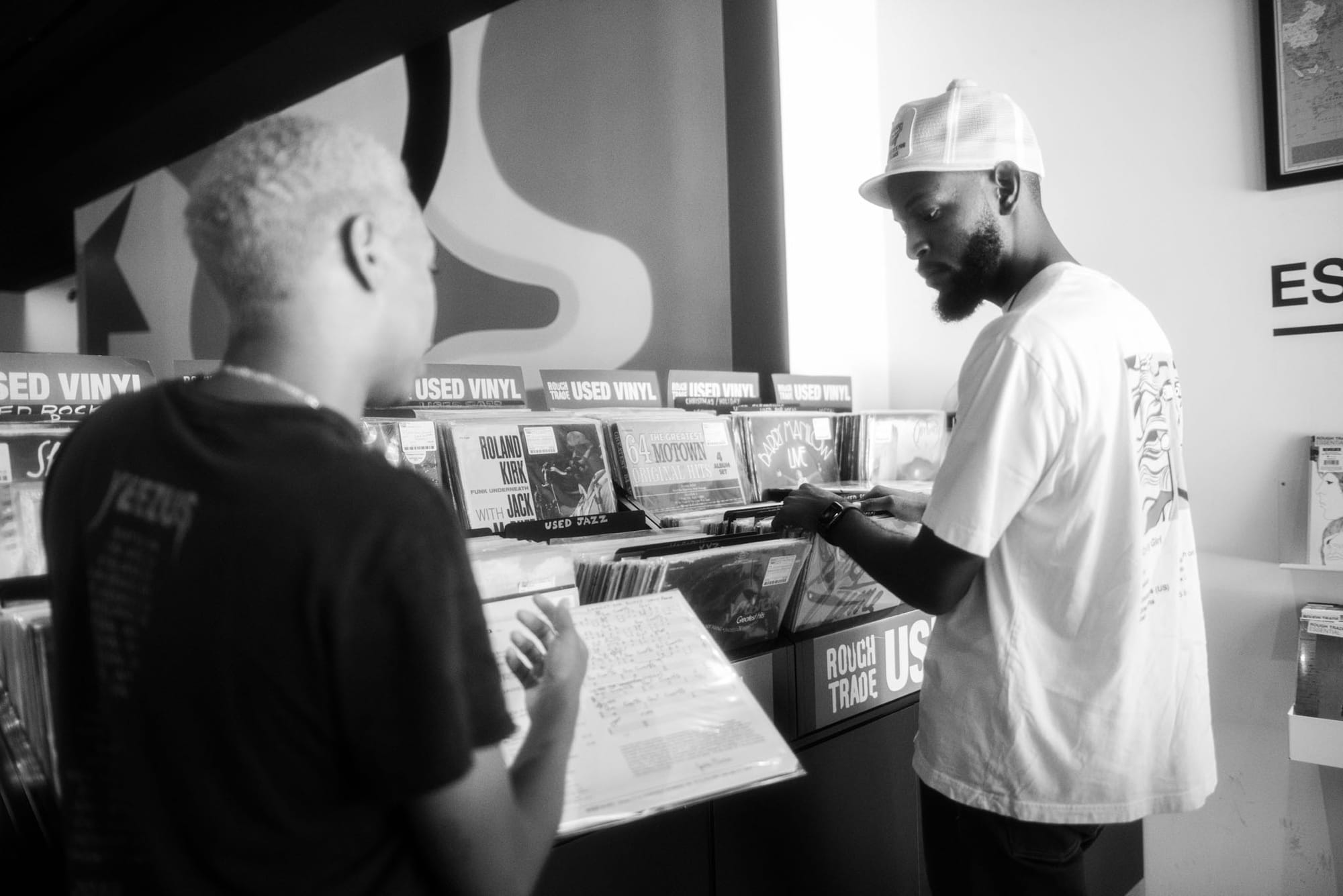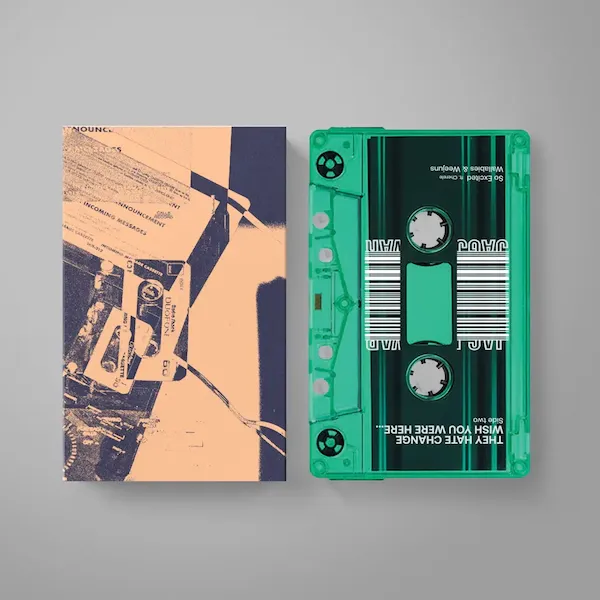They Hate Change are sonic omnivores, obsessive deep-divers, lovers of rare and radical sounds.
photos by Olivia Cummings
The Tampa Bay production/rap duo have announced a new EP Wish You Were Here…, their first project since 2022’s breakout LP Finally, New. Consisting of five tracks, the EP marks the first time They Hate Change has used outside production featuring collaborations from Wu-Lu, 96Back, and DJ Orange Julius, as well as Odd Future/NRK’s Vritra, a foundational influence on Change, all of whom they met on their global travels. The EP is an incredibly concise and masterful display of their rap skills and ear for production, building on their sonic omnivore aesthetic bringing together an amalgamation of musical influence.
We caught up with They Hate Change at our NYC store for our newest session of Shoplifting. An invitation to roam the racks in pursuit of the recorded material which has most inspired and shaped their sound today. Be sure to check out their new EP Wish You Were Here... via Jagjaguwar.
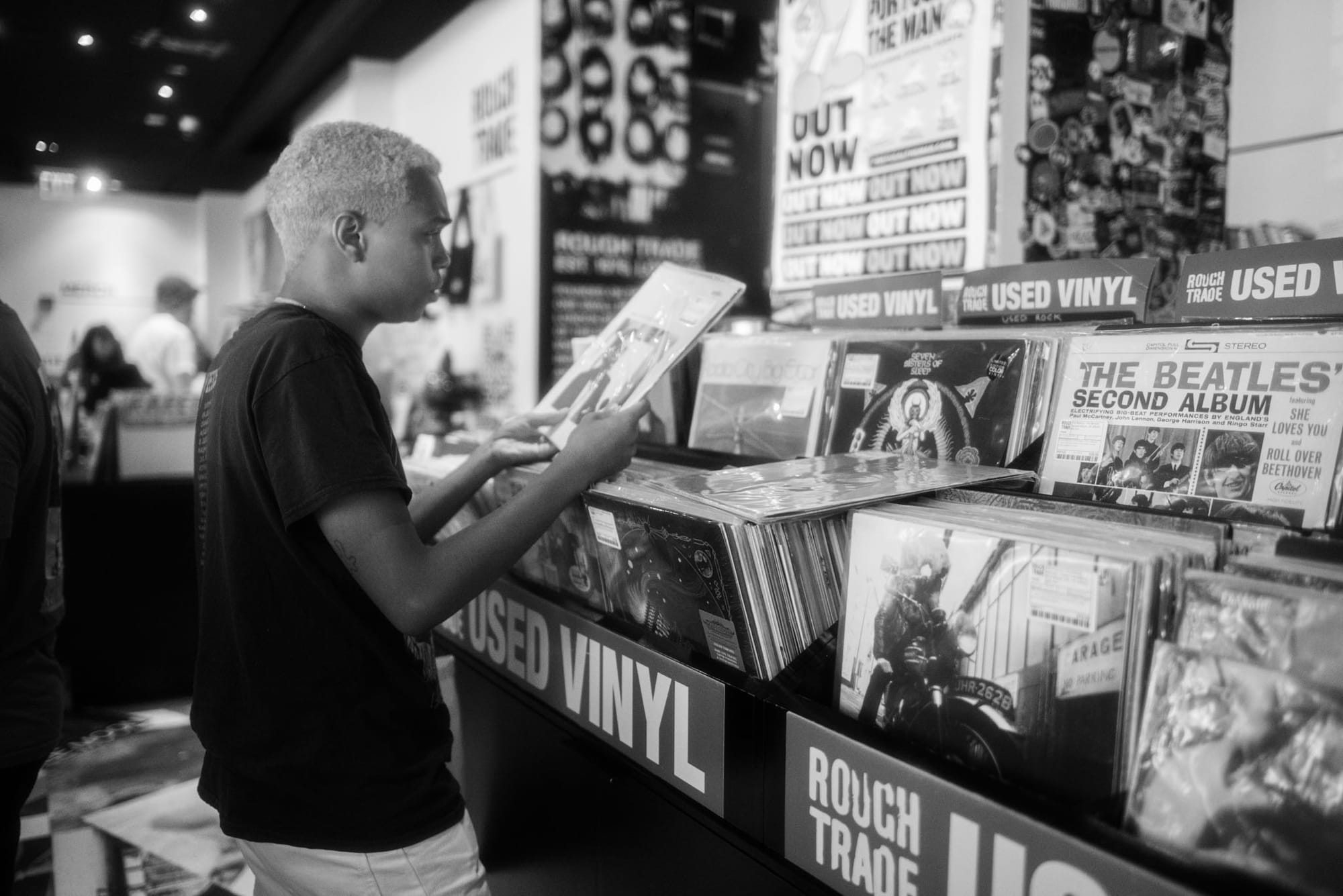
Vonne: I kind of went with records of folks that I know bits of their catalog, but I didn't know these records in particular. So I started with this B52’s record, Wild Planet. I probably heard all their records before separately, but maybe just not in context. Every time I see their first album on vinyl, I pick it up and anytime I see a compilation I'll buy that as well because yeah, they are really great. But I never heard this record in context so I think it'll be fun to listen to. Next record I have is this soundtrack Really Rosie by Carole King. I was recently watching a documentary that talked a lot about her career. I didn't know that she was a part of a songwriting partnership with her husband and she wasn’t writing lyrics at the time she was just doing composition. Then when they divorced, she basically invented the singer-songwriter genre out of necessity by having to write her own lyrics at that point or write lyrics for the songs that she was trying to produce at the time.
Next is John Coltrane’s Giant Steps. I’ve always loved A Love Supreme and Blue Train as well and I was reading more recently about like modal jazz or whatever as a concept, I wasn't familiar with the concept at all, even though I've heard some of the records before. Giant Steps was one that was mentioned in terms of the way he was modulating between modes and that he was sort of revolutionizing the genre at the time, and Miles Davis as well, like around Kind of Blue, I guess. So I'm just really interested to hear this record and hear, you know, the progression of things or how he got from here to the later stuff. Have you seen his theory circle? The Coltrane circle? It's like a circle of fifths or whatever and shows like the relation of notes. It’s the craziest shit. It was a year after he made this record that he wrote it out. It was almost his, like, mathematical equation for music. But that just shows how much of a fucking mastermind he was. So it's right around the time he did Giant Steps and then after this, obviously he did A Love Supreme. He unlocked something at this time and then just fucking really went for it.
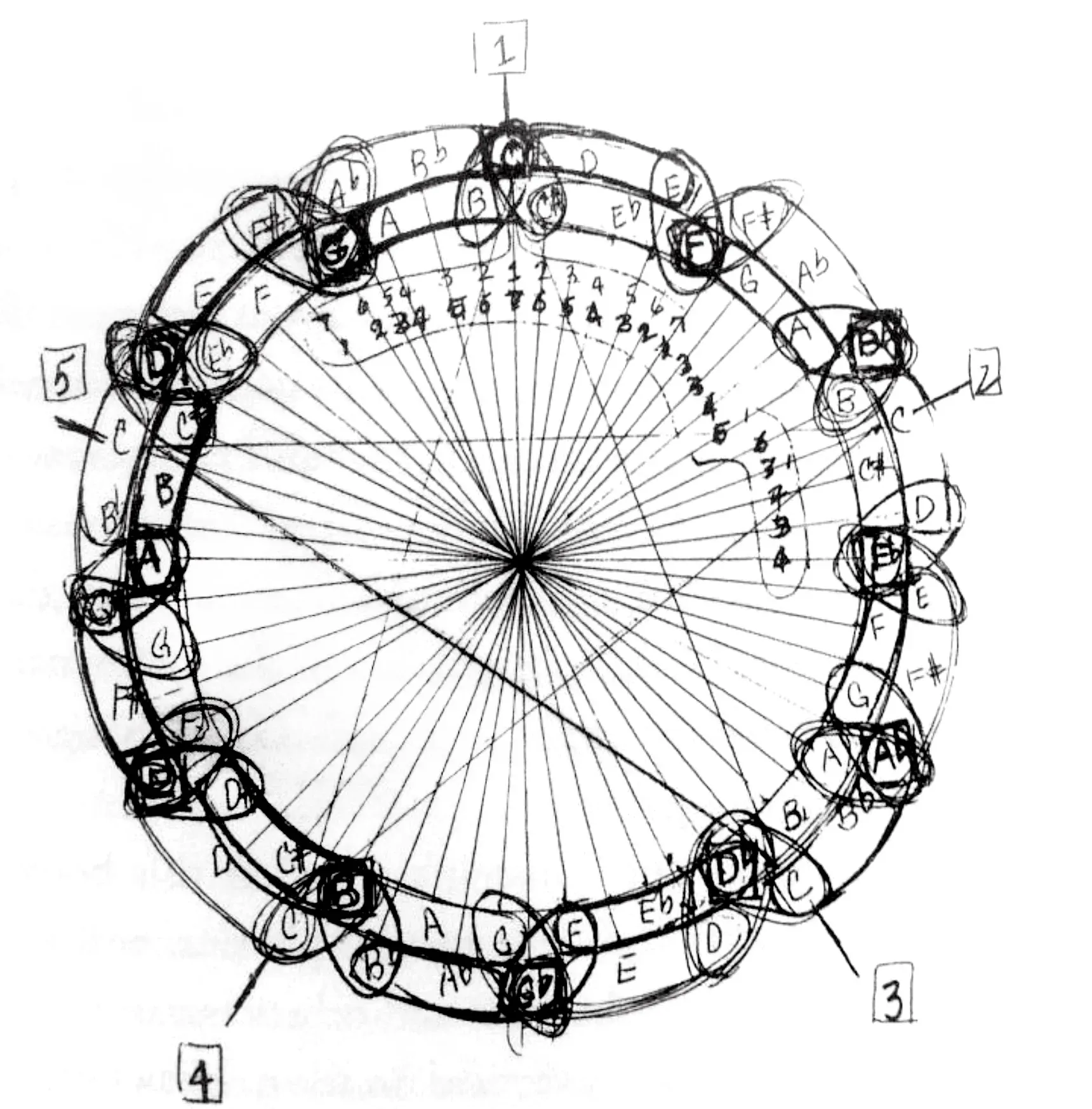
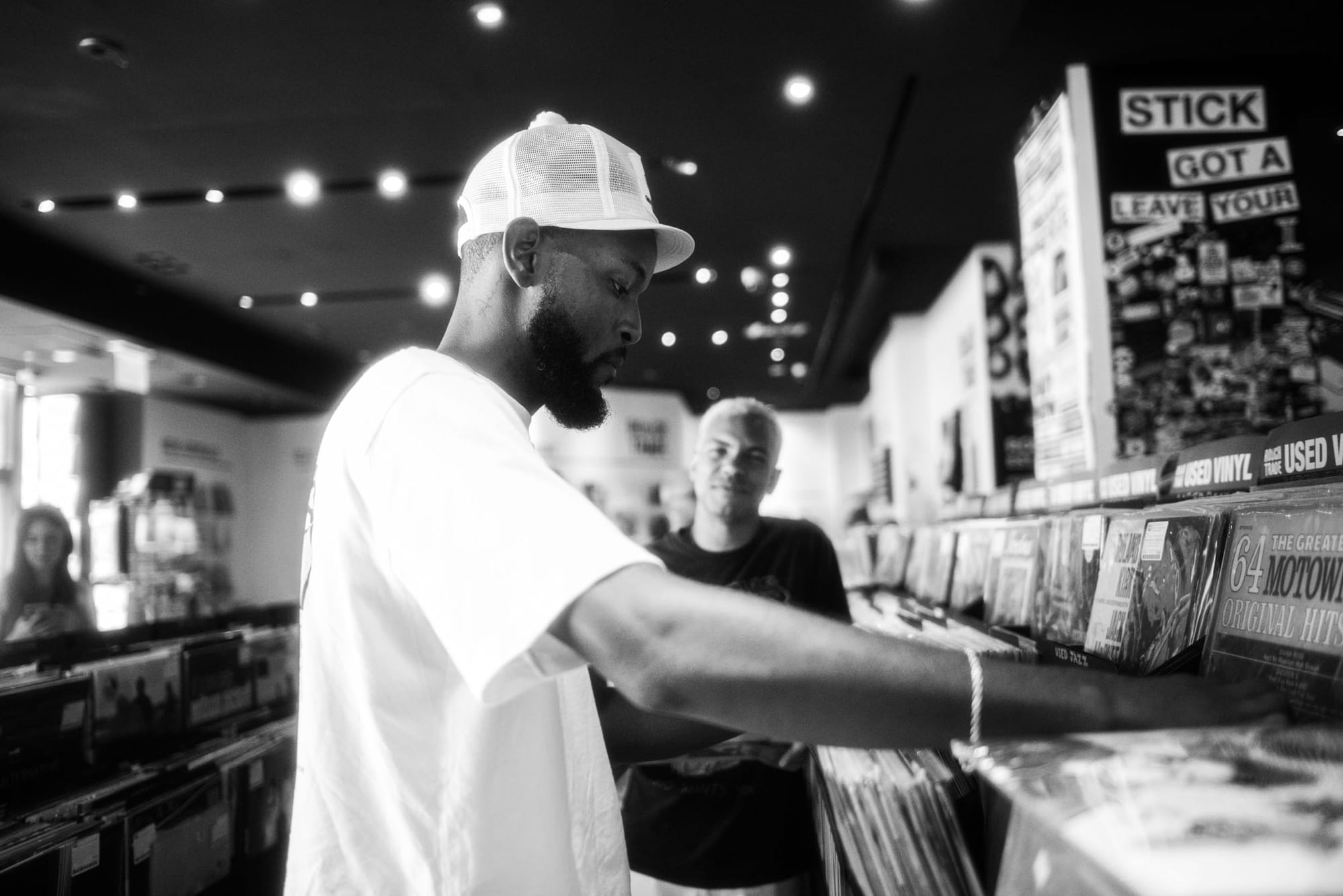
Andre: I chose Janet Jackson’s Control because I remember I was shopping at Macy's with my grandmother, I think we were doing some school shopping there, and I remember “When I Think of You” coming on and I was just like, “Oh, who is this?” and she's like “This is Janet Jackson!” So we went to a record store called Kingfish; this was when they were located in Oldsmar. I remember when me and Von were biking to the record store and then damn near couldn't make it back home. But I found “When I Think of You” on a 45. When you hear this song, it just sounds true. It's easy and relatable. When music kind of has that feeling and that attachment to everybody, it's great.
Next is Kraftwerk’s Trans Europa Express. So like listening back to a lot of their records just with them in general, a lot of it was mostly made using hardware and I wanted to know what instruments they were playing, but they're making these sounds on computers. And so when you listen to breakdance music and stuff like that, some of those breaks are coming from Kraftwerk. So it's cool hearing the fact that it wasn't intentional for people to be using these samples on break records. You know, it transformed into a base recipe to make a deep cut on a record. We kind of make sure we take that into consideration. Not to say it's intentional to make something that people are going to like but to take your time for a second and just listen because some of this stuff is just hearing. So, we definitely try to make sure we take our time.
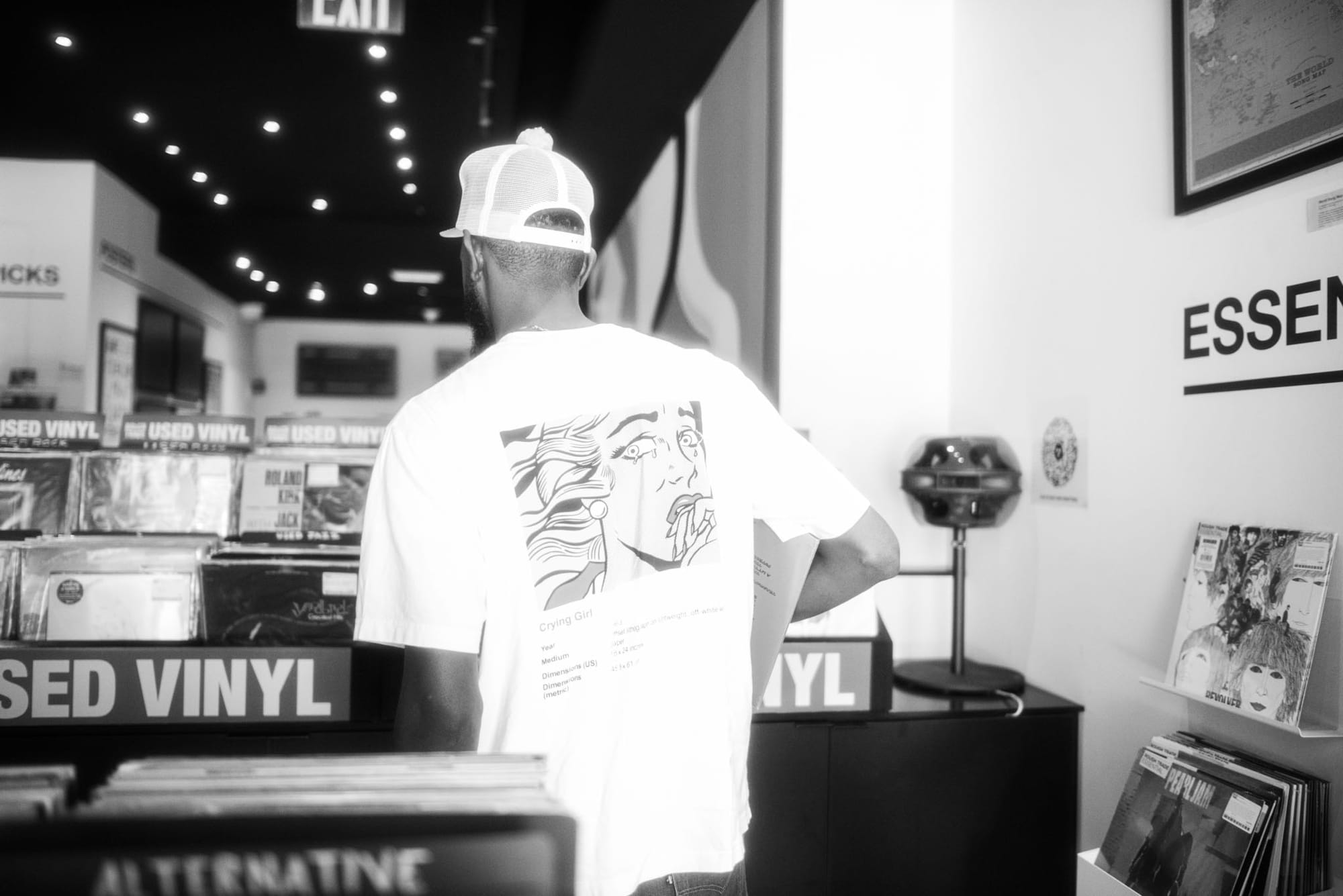
Lastly I picked De La Soul’s 3 Feet High and Rising. Rest in peace to the dove. The fact that even with this record, outside of it being great, it’s a concept record. There's these skits and all this other jazziness going on. And even with their flows trading back and forth, the three of them going back and forth, there’s that balance where they weren’t worried about whose verse was longer or shorter. Naturally, you know, we try to also do that as well too and take it into consideration because sometimes we'll be making something and be like “Ok, well you have to say this part because it works better for you,” or thinking “Oh, I know you’re going to like this part.” So yeah, concept albums are cool, but especially hearing in the form of hip hop is amazing. This is a time capsule when you put this on, which is amazing that it can still inspire as well.
Vonne: It was so in its time and even to a point where even they kind of distanced themselves from that period of time. To a degree, anyway. But it encapsulated that so well and it still inspires now, which is really sick.

